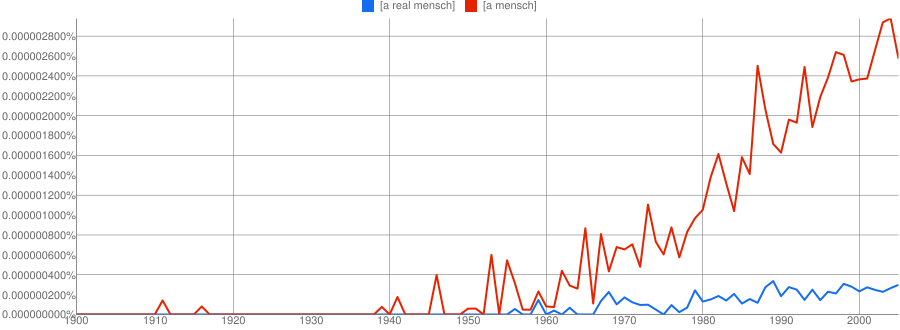
In my view, mensch is rapidly becoming Americanized, which means that the advice to "act like a mensch" is more and more likely to be understood in parts of the United Sates outside its traditional strongholds of the Northeast and big cities. Hence we get un-self-conscious article ledes like this one from David Greenberg, "It's a Myth That Nixon Acquiesced in 1960" in the Los Angeles Times (November 10, 2000):
I decided to supplement my original, Google Books–based answer with some research into early instances of "a mensch" from newspapers, using an Elephind search for that phrase. By far the earliest match for "a mensch" is from "Obituary: Felo de Se" in the [Lehighton, Pennsylvania] Carbon Advocate (April 28, 1877), a strangely jocular account of a suicide:
From Nahum Sokolow, "Aron Ber, The Terrorist" in the [Sydney, New South Wales] Hebrew Standard of Australasia August 28, 1908):
From Montague Glass, "Capture Villa? Stop Talking Nonsense," in the New York Tribune (May 14, 1916):
From "Amusing Anecdotes of Jewish Life," in the [Sydney, New South Wales] Hebrew Standard of Australasia (June 29, 1923):
The next-earliest match, from "Writer Predicts, Revolt Will Go On," in the [Kent, Ohio] Daily Kent Stater (January 16, 1969) is the first Elephind instance of mensch to appear in the U.S. midwest:
But in a letter from Sid Herzig to the editor of the [Ithaca, New York] Ithacan (April 4, 1969), the writer feels no need to explain the term:

